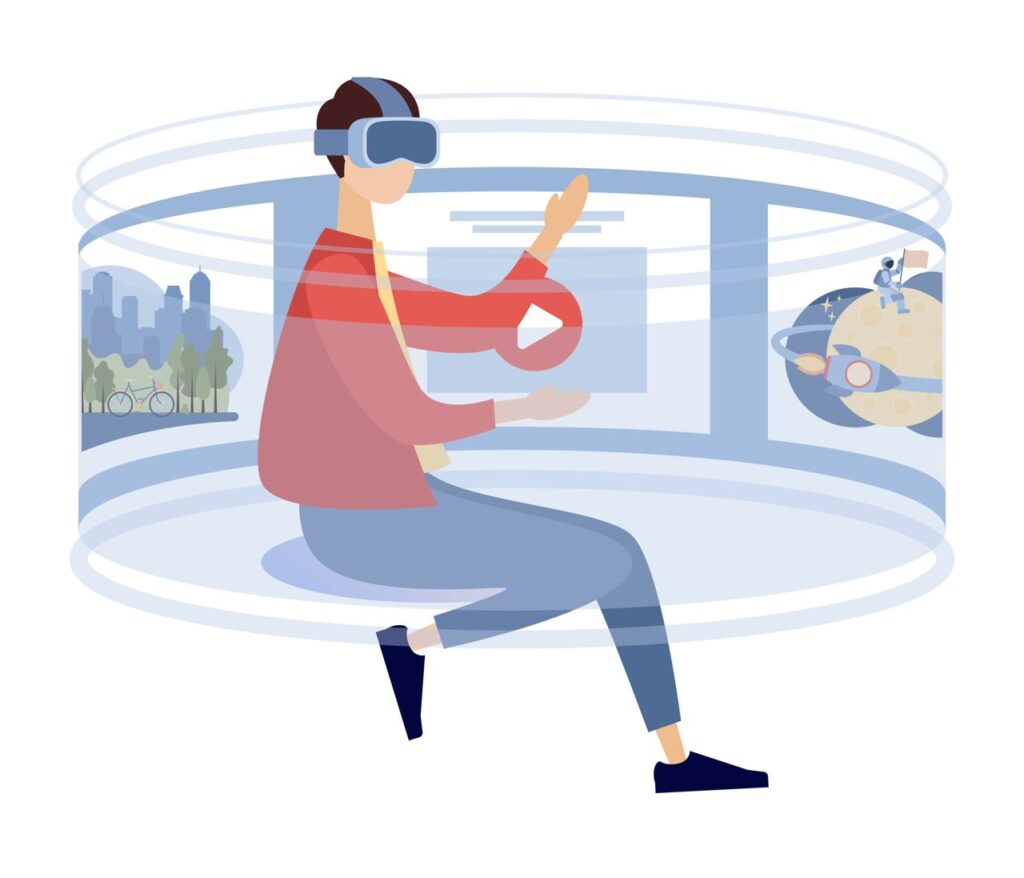Top 5 eLearning trends of 2024: shaping the future of education
The landscape of education is evolving at an unprecedented pace, with eLearning at the forefront of this transformation. As we navigate through 2024, the eLearning market trends are not just reshaping how knowledge is delivered but are also redefining the boundaries of digital learning. This blog post delves into the top 5 eLearning trends of 2024, offering insights into the innovations that are setting new benchmarks in the educational sector.

1. AI-powered eLearning solutions
Artificial Intelligence (AI) is transforming the eLearning landscape by providing smarter, more efficient learning solutions. AI-powered chatbots and virtual assistants are becoming commonplace, offering 24/7 support and personalized assistance to learners. Furthermore, AI is being used to automate grading, giving educators more time to focus on teaching and student interaction.
2. Blockchain in education
Blockchain technology is beginning to make its mark in the eLearning sector by providing secure, transparent, and tamper-proof records of learners’ achievements and credentials. This trend has the potential to revolutionize credential verification, making it easier and more reliable for employers to verify educational backgrounds.

3. Immersive learning with AR/VR
Virtual Reality (VR) and Augmented Reality (AR) are revolutionizing eLearning by providing immersive learning experiences. These technologies offer learners the opportunity to explore and interact with three-dimensional environments, making learning more engaging and effective. From medical training to history lessons, VR and AR are making experiential learning accessible to everyone.


4. Gamification in eLearning
Gamification has proven to be an effective tool in increasing learner engagement and motivation. By incorporating game design elements into educational content, learners experience a more interactive and enjoyable learning process. This trend is particularly effective in online learning environments, where keeping learners motivated and engaged can be challenging.

5. Learning analytics
Learning analytics are playing a crucial role in understanding and improving the learning process. By collecting and analyzing data on learner engagement, progress, and performance, educators can identify areas for improvement and personalize the learning experience. This data-driven approach helps in optimizing course content and teaching strategies.
Future of eLearning
The integration of these trends is set to create a more personalized, engaging, and efficient learning environment. As we move forward, the future of eLearning looks promising, with technologies like AI, VR, and blockchain paving the way for innovative educational practices. These trends are not only enhancing the learning experience but are also making education more accessible to people around the world.
Challenges of adopting these trends
While these trends offer exciting opportunities, they also come with their set of challenges and potential limitations. Issues such as data privacy, the digital divide, and the need for significant investment in technology and training can hinder the adoption of these trends. Moreover, the effectiveness of these technologies depends on their thoughtful integration into the curriculum and the availability of support for educators and learners alike.
Conclusion
The eLearning trends of 2024 are shaping an exciting future for education, one that promises to be more inclusive, flexible, and effective. As we embrace these trends, it’s crucial to navigate the challenges thoughtfully, ensuring that technology enhances rather than hinders the learning experience. By doing so, we can unlock the full potential of eLearning and pave the way for a future where education is accessible to all.

Frequently Asked Questions
Can gamification enhance eLearning outcomes?
Yes, gamification can significantly enhance learning outcomes by making the learning process more engaging and interactive. It leverages the natural human propensity for competition and achievement, leading to higher motivation and better retention of information.
How are VR and AR transforming eLearning?
VR (Virtual Reality) and AR (Augmented Reality) are transforming eLearning by providing immersive experiences that were previously impossible. These technologies allow learners to explore and interact with 3D environments, making learning more engaging and effective, especially for complex or practical subjects.
What role does AI play in eLearning?
AI plays a crucial role in eLearning by providing personalized learning experiences, automating administrative tasks, and offering support through AI-powered chatbots and virtual assistants. It enables scalable, individualized learning paths that adapt to each learner’s needs.
Are there any challenges in implementing these eLearning trends?
Yes, challenges include the need for significant investment in technology and training, ensuring data privacy, overcoming the digital divide, and integrating these technologies thoughtfully into curricula to truly enhance learning without overwhelming learners or educators.
